26 Sep2019
By Govinda Budrow
The excerpt below is taken from an article originally published on the American Indian College Fund website and is reprinted with permission.
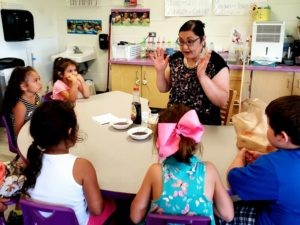
When it comes to STEM, it may be the roots that hold us in the field, the classroom, and in our love for science, technology, engineering, and mathematics.
As Native Americans, there has been a complicated history and relationship with formalized education. Beginning with boarding schools and day schools that mandated assimilation and rejection of Indigenous community languages and wisdom, the disruption has spanned for well over a century, with the abusive boarding school era coming to a close as late as the 1970s. Each generation since these boarding schools struggles with the false dichotomy that one can either be Indigenous or do well in school.
20 Sep2019
By Lynn M. Gangone
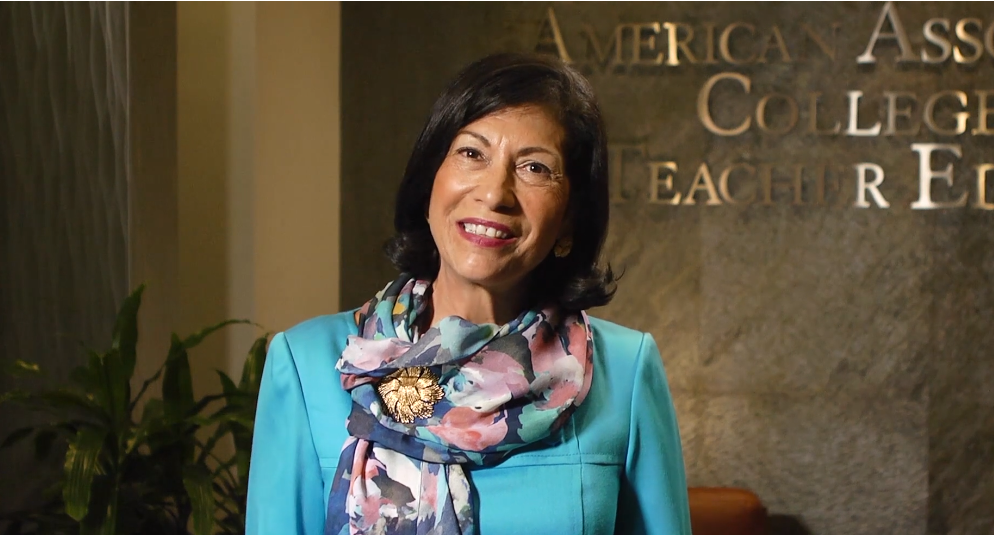
America is a country of immigrants. Through each wave of immigration, our public schools incorporate immigrant children into the fabric of our country. Our public schools serve as a cultural incubator to aid and nurture acceptance of diversity. Our local classrooms should be a microcosm of a global demographic. We, as educators, need to harness that belief for our teachers and the students they teach and guide.
How do America’s immigration challenges impact schools?
The challenge is that there are undocumented students entering U.S. schools, colleges, and universities who were not given the option to decide for themselves whether they wanted to come to this country. They have been incorporated into society, but are affected by current practices that impact their safety and security. It is projected that by the year 2040, one in every three children in the United States will grow up in an immigrant household (Suárez-Orozco, Suárez-Orozco, & Todorova, 2008). It begs the question: How do we work with those students?
Educators, school support staff, and service providers are often the first individuals in whom a student and/or family confides and reveals that they are undocumented. Recent efforts to identify undocumented parents and children in the United States challenge public schools in their efforts to meet the needs of all children residing within their school districts. Public schools are often embroiled in politically and legally sensitive situations, in which they must balance their responsibilities to serve immigrant and undocumented children, while meeting the expectations of local authorities to identify undocumented individuals.
What role do educators play in supporting immigrant children and their families?
19 Sep2019
By Kimberly Underwood
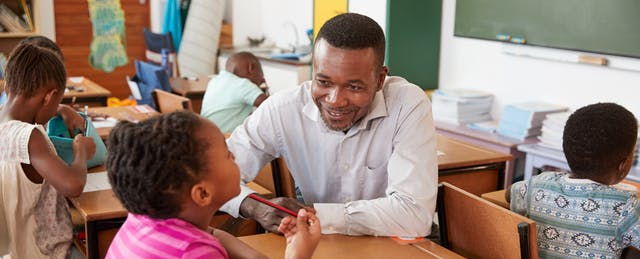
This article and photo originally appeared in EdSurge and are reprinted with permission.
Two percent. That figure may seem insignificant, until you understand the context. Despite students of color representing more than half the student population, Black males make up only two percent of the teacher workforce. So as it happens, that statistic is very significant as this lack of diversity has negative implications for all students.
For years, Black males have been underrepresented in PK-12 education. While there have been many efforts to diversify classrooms by adding more Black male educators, there are still obstacles preventing us from successfully reaching this goal. Now these educators are speaking up and their voices are sounding the alarm for education diversity.
For years, Black males have been underrepresented in PK-12 education.
13 Sep2019
By Madeline Will and Corey Mitchell

The excerpt below is taken from an article originally published in Ed Week and is reprinted with permission.
It’s a constant struggle for school districts across the country to find qualified special education teachers. An extra challenge: finding special educators of color to help meet the needs of a student population that can be disproportionately nonwhite.
Just over 82 percent of special education teachers in public schools are white, according to 2011-12 federal data, the most recent available. Meanwhile, only about half of students receiving special education services are white, according to 2017-18 data.
Yet teacher diversity matters: Decades of research has shown that students often perform better academically when they are taught by teachers of the same race.
“The special education field is really prime to recruit faculty of color,” said Jacqueline Rodriguez,
12 Sep2019
By Katrina Norfleet
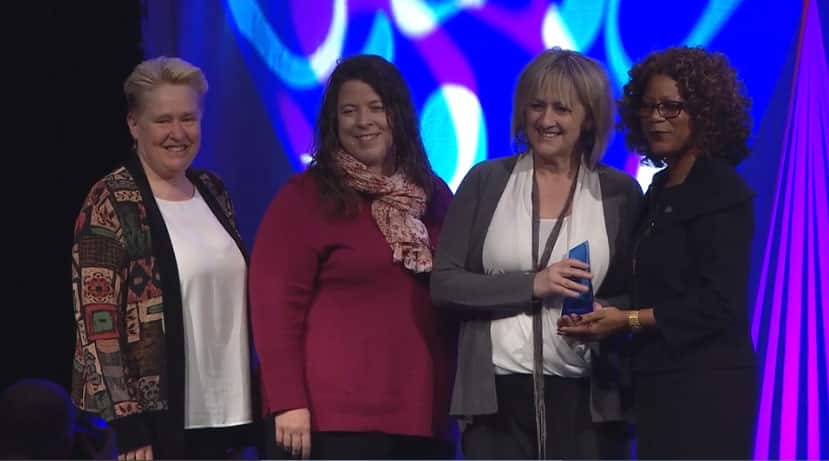
The annual Best Practice Award in Support of Multicultural Education and Diversity honors members for their outstanding work infusing diversity throughout all components of a school, college, or department of education (SCDE) as critical to quality teacher preparation and professional development. This award, sponsored by the Committee on Global Diversity, represents one of the nine categories of the annual AACTE Award Program that recognizes excellence in educator preparation.
This video features the 2018 Best Practice Award in Support of Multicultural Education and Diversity recipient, University of Colorado (UC) Denver School of Education and Human Development (SEHD). The Committee selected this program for it outstanding efforts in preparing teacher candidates from diverse, multicultural backgrounds to gain the foundational knowledge and experiences necessary to advocate for the educational equity for all children.
29 Aug2019
By John Henry
This article originally appeared on the WUSA 9 website and is reprinted with permission.
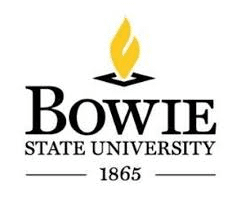
If you look inside many of America’s classrooms, you’ll notice someone is missing: black male teachers.
According to the latest data from the U.S. Department of Education, only 2% of the country’s teaching workforce are black males.
The phenomenon has not been lost on educators like Bowie State University professor Julius Davis. He recently undertook an effort to increase the number of black male teachers that can be found in DMV classrooms.
The University System of Maryland awarded Davis a $44,000 grant to operate a center at Bowie State that specializes in the research and mentorship of black male students and teachers.
22 Aug2019
By Emily Stembridge
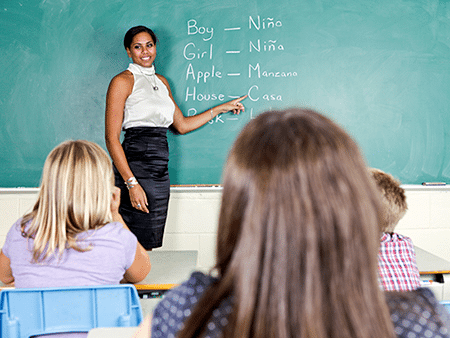 The IMPACT-PD grant—Improving Preschoolers’ Acquisition of Language through Coaching Teachers and Professional Development—is playing an integral role in providing preschool educators the tools they need to help their students develop proficiency in English as a second language.
The IMPACT-PD grant—Improving Preschoolers’ Acquisition of Language through Coaching Teachers and Professional Development—is playing an integral role in providing preschool educators the tools they need to help their students develop proficiency in English as a second language.
The United States Department of Education National Professional grant, funded by the Office of English Language Acquisition, aims to provide educators with professional development opportunities for improving instruction of dual-language learners in preschool.
The IMPACT-PD program, a partnership between the University of Alabama at Birmingham and the Alabama Department of Early Childhood Education, focuses on four goals to further training and education to children learning English early in life:
16 Aug2019
By Lynn M. Gangone
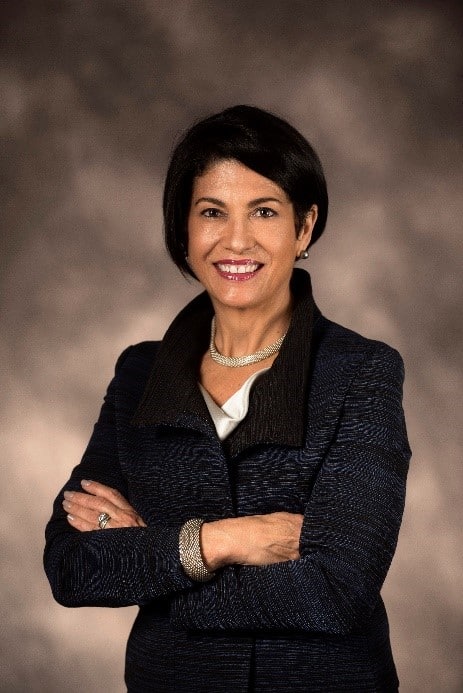 Educators and students are facing unprecedented times. The challenges both students and their teachers confront today vastly affects the efficacy of even the best educator’s efforts to create and foster students’ zeal for learning and to contribute to the society they will one day shape. Yet, educators must stay committed to fulfilling their social responsibility now more than ever before.
Educators and students are facing unprecedented times. The challenges both students and their teachers confront today vastly affects the efficacy of even the best educator’s efforts to create and foster students’ zeal for learning and to contribute to the society they will one day shape. Yet, educators must stay committed to fulfilling their social responsibility now more than ever before.
What Should Social Responsibility Look Like in the Teaching Profession?
This varies from educator to educator, so the answer to this question is complicated and multi-faceted.
Education is about opening minds, creating new knowledge. It is an expansive endeavor. In theory, education should provide us with the understanding and capacity of what it means to be a citizen of this nation and the world. Our nation’s founders understood the importance of an educated citizenry. Today, I believe that we need educators to support both a students’ academic development and citizen development.
13 Aug2019
By Katrina Norfleet

The September/October 2019 issue of the Journal of Teacher Education (JTE) is now available online, while printed copies are arriving in the mail to subscribers around the country. Below is a summary of the articles included in Vol. 70, Issue 4, 2019:
In “Teacher Agency and Resilience in the Age of Neoliberalism,” members of the JTE editorial team, Tonya Bartell, Christine Cho, Corey Drake, Emery Petchauer, and Gail Richmond, address how the articles in this issue provide insights into ways educator preparation programs can support teachers in developing and enacting agency. They discuss how making small shifts or adaptations in everyday teaching practices can create more just and equitable teaching and learning.
In the paper, “Whiteness as a Dissonant State: Exploring One White Male Student Teacher’s Experiences in Urban Contexts,” Stephanie Behm Cross of Georgia State University, Nermin Tosmur-Bayazit of Fitchburg State University, and Alyssa Hadley Dunn of Michigan State University, suggest that Whiteness itself is a dissonant state. The authors argue that
09 Aug2019
By Conra Gist
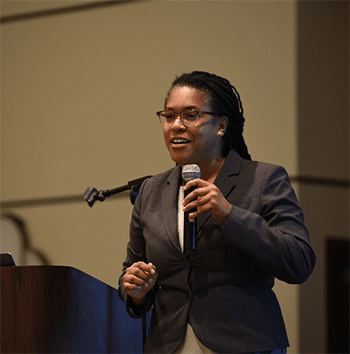
At the 2019 AACTE Annual Meeting, the third annual Diversified Teaching Workforce (DTW) Institute convened teacher educators, aspiring teachers, school leaders, and deans from across the nation to address one of the most pressing teacher education issues—diversifying the teacher workforce. Leaders of the DTW Topical Action Group (TAG), with the support of AACTE’s Member Engagement and Support team, organized the Institute. The event began with a welcome by AACTE President and CEO Lynn M. Gangone and a presentation by AACTE consultant Jane West on the state of teacher diversity in educator preparation. Marvin Lynn, College of Education dean at Portland State University, followed with opening remarks that contextualized the critical challenges facing the educator workforce as it relates toteacher diversity.
The morning plenary featured a panel facilitated by Delisa Saunders and Dyan Smiley of the American Federation of Teachers that examined
05 Aug2019
By Jane E. West

This blog post is written by AACTE consultant Jane West and is intended to provide update information. The views expressed in this post do not necessarily reflect the views of AACTE.
The Senate left town yesterday following on the heels of the House bringing the five-week summer recess into full bloom. Congress will reconvene in September, and thanks to the passage of the budget deal, move forward in adopting 12 appropriations bills, including one with education spending. However, obstacles remain.
26 Jul2019
By Katrina Norfleet
The Teacher Educator national peer-reviewed journal recently shared the top 10 most downloaded articles in the first three months of 2019. The most downloaded article in 2018 was “Current Issues in Teacher Education: An Interview with Dr. Linda Darling-Hammond” with 2,726 downloads. Other popular articles cover a range of topics including multicultural teacher education, perceptions of ELL students, student stress and coping, and teaching reflective practice. The full list of the top 10 articles are included in the table below.
AACTE President and CEO Lynn M. Gangone serves on Editorial Advisory Board of The Teacher Educator, a forum for promoting discussion among educators who seek to challenge existing boundaries in the field. The journal invites AACTE members to submit notable work on current
19 Jul2019
By Brian McNeill
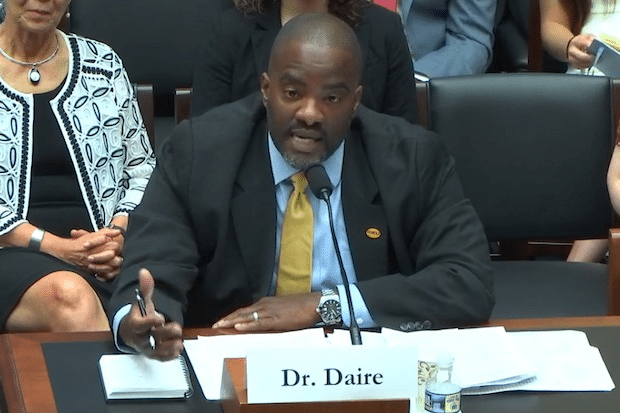
This article and photo originally appeared in VCU News and are reprinted with permission
Andrew Daire, dean of the School of Education at Virginia Commonwealth University, testified at the U.S. House Wednesday about how VCU is working to prepare high-quality, dedicated classroom teachers and encouraged Congress to support similar initiatives across the country.
“Immediate and innovative action is required to address the challenges in high-needs and low-performing schools with families living in generational poverty and disparities in student learning outcomes,” said Daire, testifying before a joint U.S. House Education and Labor Committee subcommittee hearing on “Educating our Educators: How Federal Policy Can Better Support Teachers and School Leaders.”
“The challenges faced by many of our schoolchildren, and in many of our schools, are not average and will not be met with average efforts,” Daire said in his prepared testimony. “We need to be bold and aspirational in our desires and efforts to address these challenges.”
19 Jul2019
By Michael Rouleau
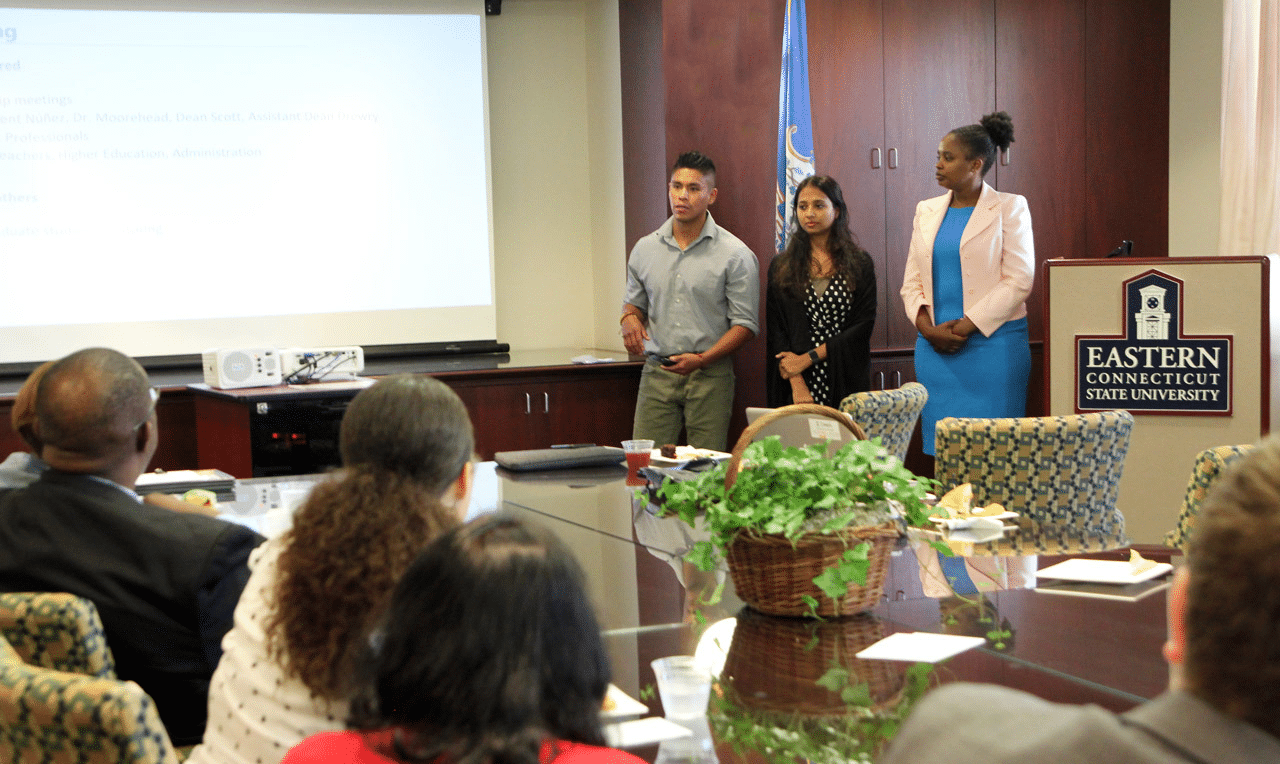
This article and photo originally appeared on the Eastern Connecticut State University website and are reprinted with permission.
School districts across the nation continue to face a lack of minority teachers. Eastern Connecticut State University’s participation in the Holmes Master’s Program seeks to alleviate this problem. On June 28, Eastern celebrated three aspiring teachers from underrepresented backgrounds who will soon enter the teaching profession. Faith Kioko (Ashford), Ian Stygar (Lebanon) and Sayantani Nandy (Ellington) were honored at the annual Holmes Master’s Luncheon, hosted by the School of Education & Professional Studies and Graduate Division.
The American Association of Colleges for Teacher Education’s (AACTE) Holmes Program supports students from historically underrepresented groups who are pursuing careers in education. Eastern continued its partnership with Holmes, hosting its third cohort of Master’s students this year.
The 2019 cohort of full-time graduate students had a busy year in pursuit of teacher certification. In addition, they designed research proposals, worked in Eastern’s Center for Early Childhood Education, presented to classes and hosted forums on campus. They interviewed alumni teachers and gathered data for the Council for the Accreditation of Educator Preparation (CAEP). They also attended the AACTE’s annual Washington Week and advocated on
17 Jul2019
By Jerrica Thurman and Donna Sacco
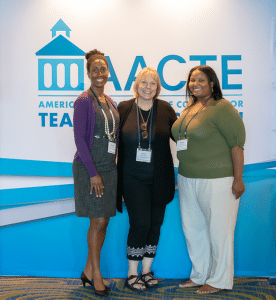 AACTE’s Jerrica Thurman first met Donna Sacco in 2015. Sacco was one of three doctoral students from George Mason University (GMU) who worked as an AACTE education intern, assisting in advocating for high-quality preparation programs and with its marketing communications. Thurman was pleasantly surprised when she saw Sacco at AACTE’s 2019 Washington Week with her two Holmes doctoral students from the University of North Carolina at Charlotte (UNCC). It was during her AACTE internship that Sacco learned about the Holmes Program and determined to make a personal contribution to help diversify the teacher workforce by becoming a Holmes advocate. The following summary highlights an interview Thurman had with Sacco about her journey from an intern to a change agent in education.
AACTE’s Jerrica Thurman first met Donna Sacco in 2015. Sacco was one of three doctoral students from George Mason University (GMU) who worked as an AACTE education intern, assisting in advocating for high-quality preparation programs and with its marketing communications. Thurman was pleasantly surprised when she saw Sacco at AACTE’s 2019 Washington Week with her two Holmes doctoral students from the University of North Carolina at Charlotte (UNCC). It was during her AACTE internship that Sacco learned about the Holmes Program and determined to make a personal contribution to help diversify the teacher workforce by becoming a Holmes advocate. The following summary highlights an interview Thurman had with Sacco about her journey from an intern to a change agent in education.
What piqued your interest in the issues of teacher diversity as a doctoral student at George Mason University and student intern at AACTE?
Before my doctoral program, I was a special educator with a master’s degree in bilingual special education. For my entire career, my focus has been on culturally and linguistically responsive instructional practices. Part of my drive came from the stories my father told me about the obstacles he experienced in his childhood as the son of Italian immigrants. He was a brilliant man but never went to college. He had one advocate who helped mentor him in appreciating the arts but had no teachers who were advocates, role models, or who understood his background. Once I began researching teacher education, I was surprised to learn that the teaching force is composed of roughly 80% white female teachers. How had I missed that obvious point? I am a white female who was teaching mostly boys of













 The IMPACT-PD grant—Improving Preschoolers’ Acquisition of Language through Coaching Teachers and Professional Development—is playing an integral role in providing preschool educators the tools they need to help their students develop proficiency in English as a second language.
The IMPACT-PD grant—Improving Preschoolers’ Acquisition of Language through Coaching Teachers and Professional Development—is playing an integral role in providing preschool educators the tools they need to help their students develop proficiency in English as a second language. Educators and students are facing unprecedented times. The challenges both students and their teachers confront today vastly affects the efficacy of even the best educator’s efforts to create and foster students’ zeal for learning and to contribute to the society they will one day shape. Yet, educators must stay committed to fulfilling their social responsibility now more than ever before.
Educators and students are facing unprecedented times. The challenges both students and their teachers confront today vastly affects the efficacy of even the best educator’s efforts to create and foster students’ zeal for learning and to contribute to the society they will one day shape. Yet, educators must stay committed to fulfilling their social responsibility now more than ever before.




